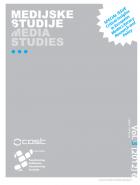Measuring Media Literacy in a National Context: Challenges of Definition, Method and Implementation
Measuring Media Literacy in a National Context: Challenges of Definition, Method and Implementation
Author(s): Monica E. BulgerSubject(s): Media studies, Communication studies
Published by: Fakultet političkih znanosti u Zagrebu
Keywords: media literacy; media education; critical thinking; literacy research methods;
Summary/Abstract: General consensus among policymakers and academics is that media literacy is the ability to access, analyse, and evaluate media in multiple forms and communicate competently within these forms. Yet this seemingly straightforward definition presents methodological challenges in measurement, especially within a national context. Conceptually, approaches to measuring media literacy are often broadly inclusive, without necessarily considering how media literacy is enacted or identifying specific examples of media literate actors within daily contexts. Logistically, indicators are often defined in terms of existing data or data that can be easily collected, rather than choosing stronger measures identified through empirical research. This article examines the methodological challenges associated with measuring national levels of media literacy using the recent Testing and Refining Criteria to Assess Media Literacy Levels in All EU Member States as a case study. The article concludes by recommending more focused measures that account for practices, contexts, and shifting policy priorities.
Journal: Medijske studije
- Issue Year: 3/2012
- Issue No: 06
- Page Range: 83-104
- Page Count: 22
- Language: English

